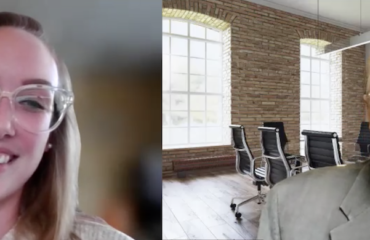Justice Speaks Podcast Episode #57
Justice Speaks continues its series of interviews with State Treatment Court Associations’ leaders and State Treatment Court Coordinators by interviewing Johanna Braud, the Statewide Coordinator for the Louisiana Drug and Specialty Courts office, and Fletcher Hyacinth, the Statewide Program Attorney/Manager at the Specialty Court office for the Louisiana Supreme Court. This episode is sponsored by Reconnect.
Ms. Braud explains that she comes from a corporate accounting background but shifted her career path when faced with long working hours that clashed with her responsibilities as a parent. She found her calling at the Jefferson Parish Human Services Authority, where she helped secure funding for adult and juvenile Drug Court programs. Fast forward a few years, and she’s been an integral part of the Supreme Court Drug and Specialty Court office for 21 years.
On the other hand, Mr. Hyacinth’s embarked on a journey that took him from the Caribbean to the United States in 1994. He pursued psychology as an undergrad and went on to law school at Loyola in New Orleans. Around 2005, he became involved in establishing a Drug Court program, initially feeling like a “lost ball in tall grass.” However, with support from All Rise, he received invaluable training and experience, serving in various roles within the program. Those roles included Drug Court coordinator, case management, drug testing, and even hearing officer. He gained a holistic understanding of the system, from the ground up, and built strong connections with participants and their families, navigating both triumphs and challenges.
On the Way to the LA Supreme Court
For Johanna, her journey to the Specialty Courts’ office began over two decades ago when she joined the office with responsibility for its fiscal monitoring, tasked with ensuring that Drug Court programs managed their funding correctly. Her efforts were instrumental in organizing funding and establishing accountability. As the years passed, she climbed the ladder, becoming the Business Services Manager and eventually assuming the role of Director when her predecessor retired a year and a half ago.
Fletcher’s path to the Supreme Court took a different route. He joined the office 18 months ago, drawn by the flexibility and a lifelong dream of working for the Supreme Court. His transition has been eye-opening, exposing him to macro-level perspectives that contrast with his earlier micro-level experiences in Drug Courts.
They discuss the Louisiana Association of Drug and Specialty Courts (LADSC) which plays a pivotal role in enhancing Drug Courts, and partnering with the Supreme Court. They maintain an informative website (LADSC.org) and an active Facebook page to keep stakeholders updated. Additionally, they send out emails to notify professionals about upcoming trainings and events.
A Twist for the Annual Training Conference
The annual training, which previously took place in New Orleans, saw a unique twist in 2023. To accommodate participants from across the state, they organized three regional trainings, bringing the training closer to the professionals. This innovation allowed attendees to access valuable training without the added travel burden.
Down the Road for Louisiana’s Specialty Courts
So, what’s on the horizon for 2024? Louisiana is planning to host its conference in the Lake Charles area, featuring speakers from various parts of the United States and leveraging insights gained from previous events. The focus is on providing comprehensive training that benefits professionals in the field.
During the discussion, they turn to Specialty Courts funding, explaining that funds comes primarily comes from an annual appropriation through the state legislature. It’s a blend of approximately 60% state general funds and 40% Federal TANF (Temporary Assistance for Needy Families) funds.
They go on to discuss how additional funding is crucial to expand the reach of Specialty Courts into parishes or judicial districts that currently lack access to these programs. Furthermore, there’s an opportunity to transform Drug and Specialty Courts into comprehensive Treatment Courts that triage individuals with mental health and substance use disorder issues, offering a single point of contact for tailored support.
Upcoming Challenges
As for future challenges, communication and collaboration among the various state agencies and departments are areas that need attention. Strengthening these partnerships will enhance the effectiveness of Specialty Courts.
The conversation also touched on the resilience of Louisiana’s communities in the face of storms, drawing parallels to the resilience displayed by Drug Court participants who weather life’s challenges and find hope and transformation through Specialty Court programs.
A Closing Note of Thanks
In closing, Ms. Braud and Mr. Hyacinth emphasized the importance of collaboration, statewide support, and sharing success stories to create a brighter future for Specialty Courts in Louisiana.
We wish to thank Ms. Braud and Mr. Hyacinth for joining us on Justice Speaks. We also wish to thank Reconnect for sponsoring this podcast episode.
Additional Resource
You can watch this interview by going to the Justice Speakers Institutes’ YouTube Channel or by clicking here.
Get more articles like this
in your inbox
Subscribe to our mailing list and get the latest information and updates to your email inbox.
Thank you for subscribing.
Something went wrong.










